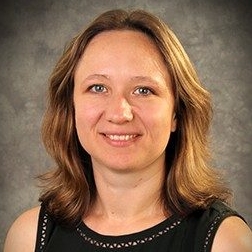December 2020: Elena Lind

Elena Lind
Assistant Professor
Electrical and Computer Engineering
PhD, Civil Engineering, Washington State University, Washington
MS, Environmental Engineering, University of Idaho, Idaho
BS, Chemistry, Moldova State University, Moldova
Email eslind@vt.edu
How do you see your work contributing to the goals and vision of IIHCC?
In terms of the goal of creating transdisciplinary solutions, my work engages technology, atmospheric physics, and atmospheric chemistry merged together to provide real-time air quality data around the globe to help improve human health. In a sense, being able to provide validation to satellites enables us to cover the entire globe, regardless of which community one hails from. Additionally, I am extremely interested in air quality in regions that do not presently have any representation such as Navajo Nation, where we are presently trying to install some instrumentation in collaboration with the schools there to enable the students to engage with both local and global air pollution solutions.
What other areas outside of your discipline would you entertain for future research and proposal work?
One of the more natural propagations I am approaching is attempting to work with health professionals directly so that we can actually connect the information that we are collecting which exists strictly as data right now to the actual human health impacts and exposures. What I’m really interested in is the impacts of air quality not only on human health, but also on the health of the environment around us. For example, ground-level ozone caused by pollution creates billions of dollars of agricultural damage around the world and trying to connect what the safe levels of pollutants might be to potential methods of protecting crops. This connects my work to things like agriculture and botany, so there are many potential connections from my work to that of other disciplines. Another thing I’m very interested in is education because if we do not educate the next generation in sustainability and pollution prevention, they are going to suffer too. A connection between the technology I work with and educational environments could lead to improvements of quality of life not only across regions but across time as well.


